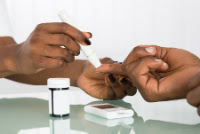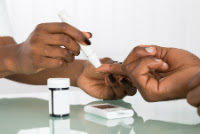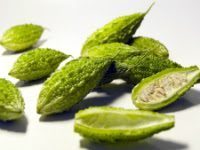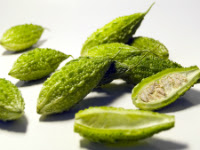
Interesting fact: The earliest known written record that likely referred to diabetes was in 1500 B.C in the Egyptian Ebers papyrus. It referred to the symptoms of frequent urination.
Basically, diabetes is a disease in which the body experiences elevated levels of blood sugar (glucose) due to an inability to either produce or use insulin. Most of the food we eat is turned into glucose, which our body needs for energy. In response to the rise in blood glucose, the pancreas makes a hormone called insulin, to help move the glucose into our cells for an ongoing source of energy. When you have diabetes, the body either doesn’t make enough insulin (Type-1 DM) or can’t use its own insulin efficiently (Type-2 DM). This causes glucose to build up in the blood, creating a potentially dangerous situation.
Type-1 DM is a chronic auto-immune health condition in which the immune system ravages the insulin-producing cells of the pancreas, causing a loss of the hormone insulin and affecting the way glucose is metabolized. Because of the loss of insulin, the body cannot move glucose from the blood into the cells where it is needed. Instead, glucose levels run high in the blood causing system-wide damage. While Integrative holistic health approaches can support the body, there is no cure once the pancreas are completely damaged and life-long management REQUIRES insulin. As a functional medicine doctor I have see halting of the disease process and even reversal if on early testing of the patient, the anti-bodies specific for type 1 diabetes are picked up and appropriate measures instituted. For more information on this contact my office.
Type-2 DM develops from lifestyle choices. A highly preventable disease, it was once most common in middle-aged and older people. Today, it strikes an alarming number of young adults and children. It’s directly related to poor eating and exercise habits, which typically results in being overweight – a risk factor for Type-2 DM. In this type of diabetes, your body produces insulin but does not recognize and use it properly. If health is not restored through diet, lifestyle changes, and holistic approaches, Type-2 DM can progress to a state in which insulin is required.
insulin resistance & Pre-diabetes are your warning signs, conditions, respectively in which your insulin levels are high but the body cannot utilize it appropriately and the blood glucose level is chronically above normal, but not yet high enough to be diagnosed as Type-2 DM. These stages is your chance to stop the onset of diabetes in its tracks by improving your lifestyle choices.
A few simple guidelines can help you manage diabetes, and even prevent Type-2 DM:
- Eat fresh whole foods, drink plenty of water, increase dietary fiber and the amount of dark fruits and veggies in your daily diet. Avoid processed foods and added sugars. Eat what a plant makes, not what is made in a plant!
- Exercise 30 minutes per day everyday.
- Supplement with a good high quality multivitamin/mineral, pure Omega-3 Essential Fatty Acids and B- complex vitamin with activated bioavailable forms of B vitamins.
- Test your vitamin D levels and make sure they are optimal. Take supplementation if necessary to raise levels.
- To get higher support for blood sugars try a supplement formulation specially created for that purpose and a meal replacement shake which has ingredients that support a healthy blood sugar and weight.
- Try a safe and guided detoxification protocol a few times a year especially in the spring and the fall to give a “reboot” service to your body.
- Consult with a registered dietitian with functional medicine training or a Health Coach to learn how to plan and prepare healthy meals.
- Ask your Functional medicine doctor about food allergy and sensitivity testing; nutritional deficiency testing; and comprehensive gut function testing. Also check into your adrenal health as high cortisol levels can lead to or exaggerate your condition.
- Make sure you’re not constipated. If so increase fiber in your diet, and if needed try safe supportive supplements. Daily bowel movement(s) is imperative to good health!
- Take high quality multi-species probiotic supplements in the capsule or powder forms. These come in refrigerated or shelf stable forms. I love to use the latter during my travels!
- Keep your skin healthy (hydration and whole foods). Use non-toxic personal care products
- Use natural remedies such as herbal supplements, vitamins, detoxification, and dietary adjustments under the supervision of a Board certified Integrative Medicine (ABOIM) physician and Functional Medicine trained physician (IFMCP). Try a safe and guided detoxification protocol a few times a year.
- Take medications or supplements as directed by your primary care doctor or endocrinologist.
- Take particular care of your feet. Carefully monitor wounds, because many people with DM experience poor circulation and neuropathy. Vitamin C and zinc can help support would healing
- Don’t forget to take care of your mind and spirit! Emotions, stress, lack of sleep all affect the metabolic functioning of the body. Practice mindfulness of some form daily!
If you’ve been diagnosed with Diabetes mellitus (DM), or even pre-diabetes and Insulin resistance, don’t take it lightly. Follow treatment plans and lifestyle recommendations strictly. Left untreated, diabetes can lead to many complications such as heart disease, blindness, kidney failure, and lower-extremity amputations. It’s the seventh leading cause of death in the United States.
References
-
Murray, M.T., “Diabetes Mellitus” in Pizzorno, Joseph E. (2013). Textbook of Natural Medicine. St. Louis, MO Elsevier. p. 898; 1340; (chapter 161), 1320-1348.
-
National Institutes of Health. Diabetes. https://www.niddk.nih.gov/health-information/diabetes/types
-
Joslin Diabetes Center. http://www.joslin.org/info/general_diabetes_facts_and_information.html
-
Centers for Disease Control. Rates of Diabetes Diagnosed. http://www.cdc.gov/diabetes/statistics/prev/national/figbyage.htm
-
Weston A Price Foundation: Treating Diabetes. http://www.westonaprice.org/modern-diseases/treating-diabetes-practical-advice-for-combatting-a-modern-epidemic/
Image attribution: AndreyPopov/bigstockphoto.com
The information offered by this blog is presented for educational purposes. Nothing contained within should be construed as nor is intended to be used for medical diagnosis or treatment. This information should not be used in place of the advice of your physician or other qualified health care provider. Always consult with your physician or other qualified health care provider before embarking on a new treatment, diet or fitness program. You should never disregard medical advice or delay in seeking it because of any information contained within this blog.
© Praana Integrative Medicine & Holistic Health Center, LLC. All rights reserved
Dr. Manisha Ghei February 19th, 2017
Posted In: Blog Post, Functional Medicine, Integrative Medicine, Uncategorized
Tags: Diabetes Mellitus, functional medicine, healthy heart, heart disease. heart health, heart health, heart health month, heart healthy foods, holistic medicine, Insulin, Insulin Resistance, metabolic syndrome, supplements, toxins, Type 1 diabetes
Leave a Comment

A cousin of watermelon, cucumber and pumpkin, Bitter Melon is shaped like a cucumber, only larger with lighter green and more gourd-like skin. In tropical cultures, where it’s cultivated, bitter melon is used to support digestion because of its ability to break down carbohydrates. When using for medicinal purposes, the entire plant can be used, dried or fresh, from leaves and stems to the actual juice.
Holistic physicians and researchers are interested in Bitter Melon for its effect on blood glucose levels in patients with diabetes mellitus. Chemicals in the extract act similar to insulin. A number of studies have found that bitter melon juice, fruit and dried powder have a moderate effect on lowering blood glucose. In other studies, a “plant insulin” injection given to patients with Type-1 diabetes showed a decrease in blood glucose. The decrease was not as significant for patients with Type-2 diabetes, but there was a decline in blood glucose levels compared to a control group. It seems that source and type of preparatio n, as well as individual patient factors, may play a role in the effect of bitter melon on diabetes, which will inspire further research.
n, as well as individual patient factors, may play a role in the effect of bitter melon on diabetes, which will inspire further research.
In India, bitter melon is used to make different vegetable preparations. Juicing is another way to utilize its beneficial properties but since it is very bitter, I like to use some raw honey, beets, carrots and green apple with it. You can also blend bitter melon into various foods and enjoy it several times a week when it is in season.
Although considered relatively safe, consult your holistic practitioner to determine the appropriate type and amount to use for your particular needs. If you are pregnant or nursing, only use the supplement under the care of a qualified practitioner.
References:
-
Basch, E. et al, “Bitter Melon (Momordica charantia): A Review of Efficacy and Safety” American Journal of Health-System Pharmacy (2003). Web: 6 Sep 2016: http://www.ajhp.org/content/60/4/356.short
-
Shane-McWhorter, L. “Dietary Supplements for Diabetes: An Evaluation of Commonly Used Products.” Diabetes Spectrum (Sep 2009), 22 (4) 206-213; DOI: 10.2337/diaspect.22.4.206 http://jn.nutrition.org/content/133/4/1088.short
-
Fuangchan, A., et al,. “Hypoglycemic effect of bitter melon compared with metformin in newly diagnosed type 2 diabetes patients.”Journal of Ethnopharmacology (Mar 2011) 134 2: 422-428. Accessed 6 Sep 2016: http://dx.doi.org/10.1016/j.jep.2010.12.045 http://www.sciencedirect.com/science/article/pii/S0378874110009219
-
National Bitter Melon Council. http://bittermelon.org/eat/cookingbittermelon
Image attribution: oddief1/bigstockphoto.com
The information offered by this blog is presented for educational purposes. Nothing contained within should be construed as nor is intended to be used for medical diagnosis or treatment. This information should not be used in place of the advice of your physician or other qualified health care provider. Always consult with your physician or other qualified health care provider before embarking on a new treatment, diet or fitness program. You should never disregard medical advice or delay in seeking it because of any information contained within this blog.
© Praana Integrative Medicine & Holistic Health Center, LLC. All rights reserved
Dr. Manisha Ghei February 19th, 2017
Posted In: Blog Post, Food, Integrative Medicine, Recipes
Tags: Bitter Melon, Diabetes Mellitus, Food, functional medicine, Functional Nutrition, heart healthy recipe, Insulin Resistance, nutrition, recipe, Vegetable
Leave a Comment

 n, as well as individual patient factors, may play a role in the effect of bitter melon on diabetes, which will inspire further research.
n, as well as individual patient factors, may play a role in the effect of bitter melon on diabetes, which will inspire further research.

